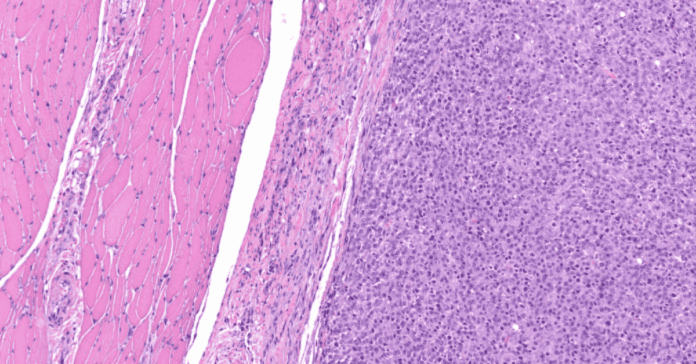Rhabdomyosarcoma is a type of cancer that occurs in soft tissues. These cancers are one of the rarest forms and affect the skeletal tissues or sometimes hollow organs like the uterus and bladder. It is common in children, but the disorder can affect people at any age.
What is Rhabdomyosarcoma?
The name rhabdomyosarcoma derives from the term rhabdomyoblasts, which are the cells from which this cancer arises. When the human embryo is only a few weeks old, these cells begin to develop. They eventually transform into tissues that make up the skeletal muscles, which are the muscles that facilitate the body’s movement.
Rhabdomyosarcoma is mostly found in children because rhabdoblasts are present in the developing embryos. Half of the cases of this disorder are found in kids, but reports of adults having Rhabdomyosarcoma have also been reported.
Types of Rhabdomyosarcomas
- Embryonal Rhabdomyosarcomas are the most common types among such cancers. Children younger than five years are usually affected by this disorder.. ERMS tends to occur in the bladder, vagina, or head and neck area, or in or around the prostate and testicles.
- Alveolar Rhabdomyosarcomas tend to grow faster and spread more rapidly too. They can occur in older age groups and affect larger muscles of the trunk, arms, and legs.
- Anaplastic Rhabdomyosarcomas are rare in children.
The real cause of the disorder is yet unknown to scientists. However, it is understood to be a genetic disorder.
- Children who inherit certain genetic illnesses are at a higher risk of developing Rhabdomyosarcomas. Neurofibromatosis type 1 (NF1), Beckwith-Wiedemann syndrome, and Noonan syndrome, Costello syndrome are among such genetic disorders that can get inherited.
What are the symptoms of Rhabdomyosarcoma?
If cancer affects the head and neck region
- Bleeding in the nose, throat, or ears
- Bulging or swelling of the eyes
- Vision problems
- Crossed eyes (strabismus)
- Headache
- Earaches
- Nose congestion or nosebleeds
If cancer affects the urinary bladder or the reproductive system
- Difficulty with bowel movements
- Vomiting
- Pain
- Constipation
- Trouble urinating and blood in the urine
- A mass or bleeding in the vagina or rectum
If cancer affects the arms or legs
- Pain in the affected area
- Swelling or a lump in the arm or leg which may also be painless
What are the causes of Rhabdomyosarcoma?
The actual cause of the disorder is unknown, but research is constantly under way so that better treatment modalities may be found.
- Swelling/bulging in the affected area with our without pain
- Sudden bleeding from nose or ear
- Loss of bladder or bowel control
- Problems with urination
Call 1860-500-1066 to book an appointment
What is the treatment for Rhabdomyosarcoma?
Surgery
The aim of surgery is to eliminate all cancer cells. However, if the rhabdomyosarcoma has developed around or near organs or other vital structures, this is not always viable. When surgery cannot entirely remove cancer, doctors may remove as much as possible before using other therapies, such as chemotherapy and radiation, to destroy any remaining cancer cells.
Chemotherapy
Chemotherapy is one of the most effective treatments in treating any cancer. Chemotherapy might also be used to kill any leftover cancer cells following surgery or radiation therapy. It can be used as combination therapy or after radiation therapy to give a better result.
Radiation therapy
To kill cancer cells, radiation therapy uses high-energy beams such as X-rays and protons. After surgery, radiation therapy may be suggested to eradicate any cancer cells that remain.
Radiation therapy may also be used where surgery is not possible. Sometimes the tumor is present near a vital organ or could be affecting multiple organs. Radiation therapy is an effective technique in such situations.
Conclusion
Rhabdomyosarcoma is a rare type of cancer. This disorder is more common in children . The real cause of the disorder is unknown, but research is constantly under way so that better treatment modalities may be found.
Frequently Asked Questions (FAQs)
Can anaplastic rhabdomyosarcoma happen in children?
No, it is a rare cancer type in adults and does not usually occur in children. Children mostly suffer from alveolar and embryonal rhabdomyosarcoma.
What are the complications of rhabdomyosarcoma?
- Cancerous tumors that spread (metastasizes)
- Recurrences of cancer
- Long term side effects like pain, swelling, loss of bladder and bowel control
Will my child also get rhabdomyosarcoma if I suffer from it?
Inheriting rhabdomyosarcoma is rare and passing it down to your children is not very common.


















